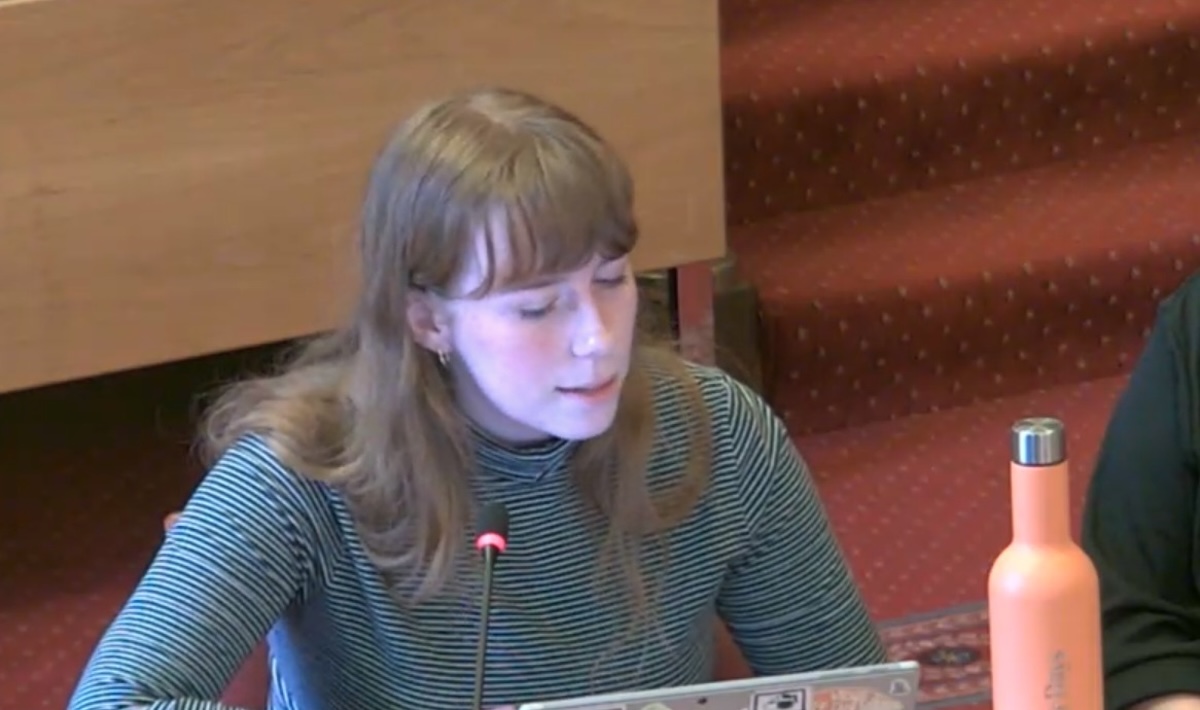Plan to tackle housing emergency ‘doesn’t go far enough’, council told
Tenant’s union Living Rent welcomes the Council action plan to cut homelessness – but says it needs to go further
A new plan aimed at reducing homelessness in Edinburgh “does not go far enough,” councillors have been warned.
Tenants’ union Living Rent welcomed the council’s formal declaration of a housing emergency but said most of the actions put forward in response “have already been proposed prior to the declaration”.
The action plan, agreed at the housing committee on Tuesday, February 27, includes reviewing the council house allocation system, reducing the number of empty homes and improving the relationship between housing officers and tenants.
It’s hoped the measures will result in 500 fewer households classed as homeless and living in temporary accommodation, of which there are currently around 5,000 in the capital, by March 2025.
A target has also been set to bring 629 ‘void’ council-owned homes back into use in the next 12 months, which would almost halve the 1,279 currently sitting empty across the city.
Housing convener Jane Meagher told the Local Democracy Reporting Service it was “a fair point to say some of the measures were already being undertaken”.
However she said the plan was “a work in progress”.
Boasting 76 different ‘projects’ she said it presented a more “comprehensive and cohesive” approach.
“It also gives it a turbo-charge, having this approach where it’s up-front, accountable and it’s driving forward,” Cllr Meagher added.
Addressing the housing committee, Living Rent member Elise Corry said: “We welcome the council is trying to tackle the housing emergency through the introduction of this action plan.
“We are glad to see steps are being taken to significantly reduce the number of void properties across the city. These properties should never have become voids in the first place.”
She told councillors the union was concerned the plan “simply does not go far enough”.
“Whilst all the actions within the plan are welcome, from our understanding a majority of these actions have already been proposed prior to the declaration of the housing emergency. We need this housing emergency action plan to go further, to be more ambitious and to truly change the landscape,” she said.
Criticising the recommendation “to increase the use of private sector leasing” she said this was “expensive and typically low quality”.
She also urged the council to “look at what powers it has in regard to compulsory purchasing the almost 7,000 empty properties in Edinburgh”.
‘Housing Emergency Action Plan 2024-29’ is divided into six priorities: simplifying access to housing; quality housing; data and partnerships; customer experience; specialised support, and finance and funding.
It states: “The plan itself is the first step in responding to the housing emergency declaration, with 76 projects and actions identified for completion over the next five years.
“These projects focus on reducing homelessness, improving access to housing and housing advice, improving the supply and quality of housing across the city, preventing harm and improving the experience of tenants in council housing.”
The council hopes the actions will see a significant reduction in the amount it spends on temporary accommodation, which was £49m in 2022-23 – a near 200% increase in three years.
But critics say they will barely scratch the surface without mass council house-building, which won’t happen without a huge cash injection.
Of the 25,000 new affordable the council wants to see built by 2027 just 8,000 have been constructed so far, and current levels of grant funding from the Scottish Government are only sufficient for the local authority and its partner housing associations to deliver around 500 each year.
Furthermore the council’s ‘potential development programme’ of around 11,000 new affordable homes in the next five years has a £665m shortfall – nearly four times the amount of grant funding set out in current resource planning assumptions.
In a bid to address this the action plan proposes ‘maximising funding of new homes and ensuring best value for revenue and capital budgets’ by ‘working with partners to deliver accommodation funded by social investment’ as well as ‘investigating models of housing co-operatives’ and ‘developing innovative finance models to finance housing delivery’.
Cllr Meagher said: “What we’re trying to do in the council is as much as we possibly can within the constraints of the financial limitations we have to resolve the housing crisis, however it has to be said we are limited by the funding.”
by Donald Turvill Local Democracy Reporting Service
